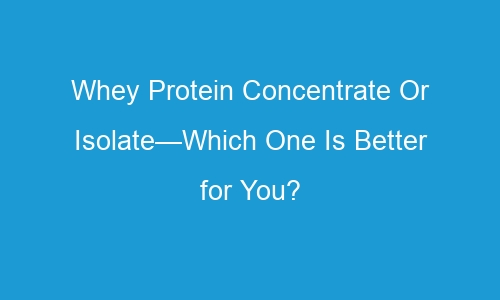All living things need protein in some form to thrive. In humans, the essential nutrient is responsible for building muscle and bones, maintaining brain health, and fueling various bodily processes. For these reasons, many people take protein supplements to help them reach their fitness goals. One of the most common forms of protein supplements is whey protein.
What Is Whey Protein?
Whey is a by-product of the cheesemaking process. It refers to the liquid that separates from the milk solids. Traditionally, whey was discarded because it was considered waste. However, years of research have uncovered the benefits of whey.
On its own, the substance contains high amounts of highly-digestible protein and all nine of the necessary amino acids required to sustain life. Once it’s been dried and turned into powder, whey protein becomes an accessible source of high-quality protein. It’s also all-natural and inexpensive, which is probably why it’s considered the standard for protein supplements. Today, whey protein exists in many forms, but the two most common types are isolate and concentrate.
Isolate Versus Concentrate
These two forms of whey protein differ in processing method and nutritional content. When whey has been dried into a powder, it has a general composition of 80% protein and 20% carbohydrates and fats. This is pretty much whey concentrate. Legally speaking, products labeled as whey concentrate can contain 25-80% protein.
On the other hand, whey isolate is produced using different steps that specifically reduce the carbohydrate and fat content while concentrating protein content. Because of this, whey isolate can have a composition of 90% protein or more. Whey isolate tends to be more expensive than whey concentrate overall.
Which Type Is Better?
Both forms are equally beneficial for their quality protein content. Sometimes, whey isolate is recommended over concentrate because it’s considered “purer.” However, research shows that one isn’t significantly more effective than the other as a protein source. Many products even contain both whey isolate and concentrate on their ingredients labels.
With less than 1% lactose content, people experiencing lactose intolerance may find whey isolate protein powder easier to digest. Whey isolate also has fewer carbs, fat, and calories per serving compared to concentrate, so it’s easier to incorporate into a nutrition plan. According to Legion Athletics, whey isolate is the “highest-quality whey you can buy.”
Alternatives to Whey Protein
In recent years, plant-based protein powders have emerged as a viable substitute for whey protein. Depending on the plant source, they can provide as much protein per serving as whey. However, whey and soy proteins are the only two proteins available in today’s market that are considered “complete,” meaning they provide all nine essential amino acids. The sources of plant-based protein can include:
- Pea
- Hemp
- Pumpkin Seed
- Brown rice
- Soy
Ultimately, which is better depends on the individual’s dietary needs and fitness goals. When in doubt, you can’t go wrong with whey isolate for its high protein content and complete amino acid profile.

